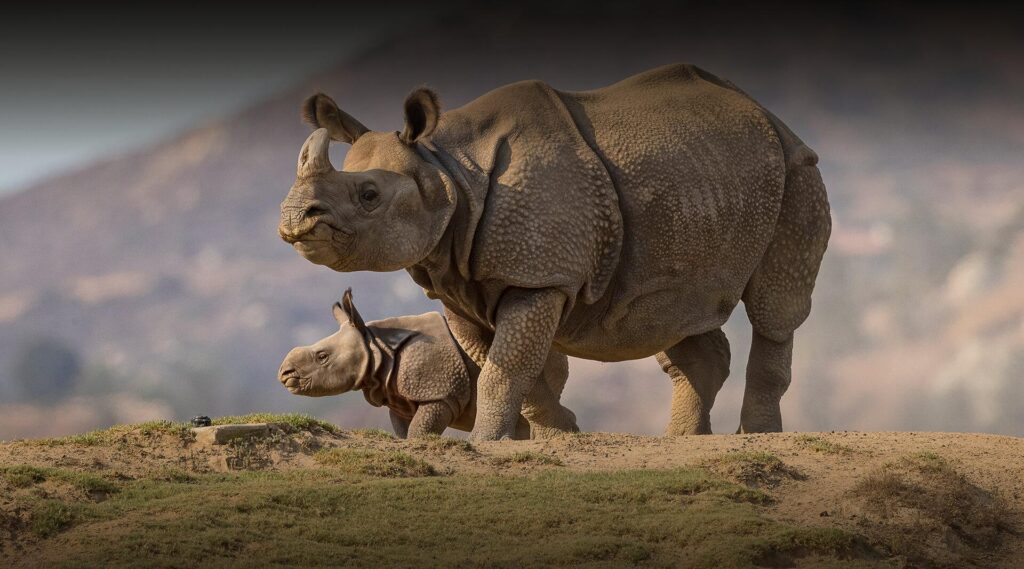Two rhinos were brutally killed in a single day in the Kaziranga National Park, raising alarming concerns about the resurgence of poaching activities in the area. The incidents have sent shockwaves through conservation circles, highlighting the ongoing challenges faced in protecting these endangered species.
The Kaziranga National Park, known for its successful conservation efforts and being a UNESCO World Heritage Site, has been a stronghold for the Indian one-horned rhinoceros. However, the recent poaching incidents have brought back memories of a time when the region grappled with rampant illegal wildlife trade.
Wildlife officials, who discovered the carcasses, are intensifying efforts to investigate the circumstances surrounding the killings. Further, the incident serves as a stark reminder that despite dedicated conservation initiatives, the threat of poaching looms large, demanding renewed vigilance and swift action from authorities.
The killing of two rhinos in a single day is a concerning spike, and conservationists fear that it may indicate a potential resurgence of poaching activities in Kaziranga. Also, poachers, often driven by the demand for rhino horns in illegal markets, pose a constant threat to the well-being of these majestic creatures, and the recent incidents underscore the need for a proactive and robust response.
Advancement In Safety
Officials are deploying advanced surveillance techniques, increasing patrolling, and enhancing security measures to curb any potential poaching activities in the park. The collaboration between law enforcement agencies, local communities, and conservation organizations is crucial to creating a comprehensive strategy to safeguard the rhino population in Kaziranga.
The Kaziranga National Park has historically been a success story in wildlife conservation, with concerted efforts leading to a steady increase in the rhino population. However, the recent poaching incidents serve as a stark wake-up call, emphasizing the persistent challenges faced by those working tirelessly to protect endangered species.
The local community, which plays a crucial role in the conservation efforts, is being actively engaged to raise awareness and gather support against poaching activities. Empowering local residents to act as stewards of their natural heritage is considered a key element in the ongoing battle against illegal wildlife trade.
As investigations into the recent rhino killings unfold, the focus is not only on apprehending the perpetrators but also on strengthening existing conservation strategies. The incidents have reignited a sense of urgency to address the root causes of poaching, including addressing the demand for rhino horns and enhancing efforts to dismantle illegal wildlife trafficking networks.
The killing of two rhinos in a single day in Kaziranga National Park is a distressing development that underscores the persistent threat of poaching. Further, authorities and conservationists are now at the forefront of a renewed battle to protect these endangered species. Moreover, with a collective commitment to reinforcing conservation measures and eliminating the menace of illegal wildlife trade in the region.

